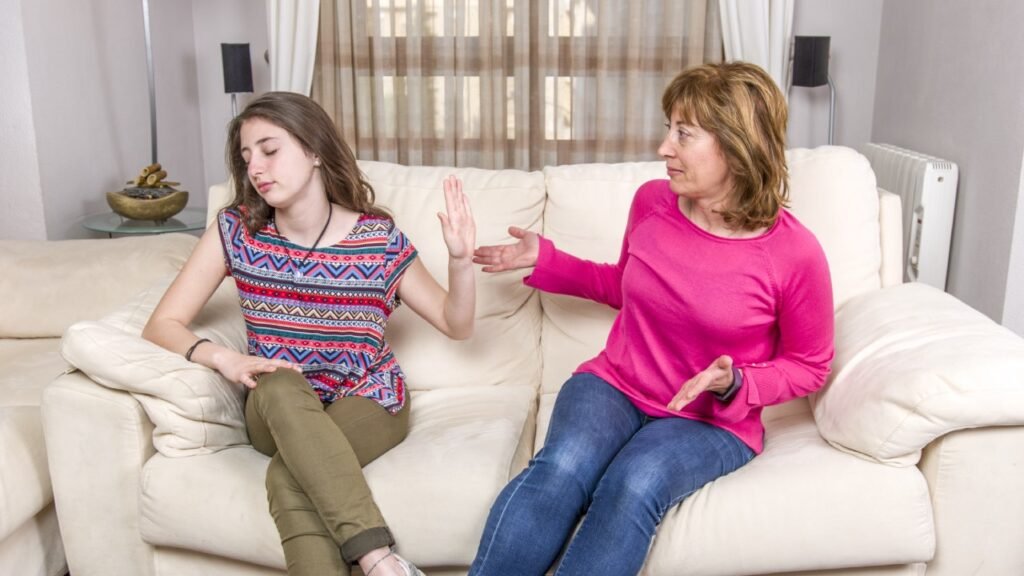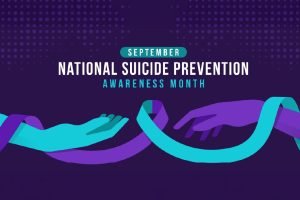My mother taught me many things.
One of them was to live in fear.
For years, symptoms of agoraphobia (fearing and avoiding places or situations that might cause panic and feelings of being trapped, helpless or embarrassed) lingered in the background of my life, trying to keep me down.
While the exact cause of agoraphobia remains unclear, environmental factors are believed to play a significant role. I know exactly where mine came from.
I inherited it from my mother!
My mother suffered from frequent panic attacks and severe anxiety. As a child, I witnessed many of her episodes.
It was traumatizing not knowing when or where my mother would experience a breakdown. I never knew how to reassure her or calm her down. Often, strangers came to our rescue.
These episodes made me stop spending time with her and created a sense of estrangement. My sisters suffered too.
I will never forget the only flight I took with my mother. Just seconds before takeoff, she was overwhelmed by intense fear and extreme nervousness.
Her heart raced while her eyes scanned the plane for escape routes. She started speaking of death. She turned to my father and told him that the plane’s engines would explode. He tried to reassure her, but she demanded we leave the plane.
Her reaction scared the passengers on board, and the flight attendant unbuckled herself mid-takeoff to come and speak to her. Eventually, she calmed down. On the way back, we all traveled by train, which took 14 hours.
My mother was a loner. She spent a lot of time in the bedroom. My father traveled frequently, and we wouldn’t see him for days. She also talked to herself and even answered back.
She knew he was being unfaithful to her. She wanted to leave but could not. She often tried to pick “boyfriends” for my sisters. None was good enough.
The boyfriend she picked for my oldest sister turned out to be a cheating bastard. My sister is just returning to him. I wonder why she can’t just leave him…?
My sisters tried on several occasions to move away from my mother. They were stopped. She was certain that their lives would be better with her in the country of her choosing.
After my mother’s death, my sisters finally moved away. To my knowledge, they are happy. Just before my mother’s death, she stopped talking to me and my sisters.
She slept a lot and spent all her time in the bedroom, protected from the reality she despised.
My mother became a hoarder.
There was a little altar in her room where she gathered sacred objects—candles, bracelets, statues, old family photos, and other items. My father stopped sleeping in the bedroom. He had late-night calls with his mistress in the living room.
In my early twenties, I saw very little of her. Somehow, I started forgetting how she looked. On the day she was diagnosed with pancreatic cancer, I found pictures of her when she was young.
I never knew her while she was “young” as she gave birth to me in her late 40s.
I was told by my father that I was “the only hope” to save my parents’ marriage. Perhaps they lied to me, as the youngest children are led to believe they’re invincible and important because no one ever lets them fail and get hurt.
The picture of the younger version of her did not resemble the person she had become. She was a spitting image of Gollum. The bedroom was her cave while my father was the “precious” ring.
She tried so long to hold on to their relationship, which had failed long before I was born. On the eve of her death, she tried to call my father—he did not respond. She died in the arms of her own mother, who was 95 years old.
I often wonder, who was my mother? The mother I knew was a very insecure, unhappy, and fear-driven lady.
At her funeral, I finally met her friends. They spoke of a woman I had never known. They spoke of a strong, intelligent, and fierce woman. A woman who traveled the world. A woman who practiced as a lawyer.
A woman so wild and beautiful that no man dared to approach her. No man could level with her. The woman I so wished I had known.
“What changed?” Her friends got silent…
I think of my mother often. She used to criticize me a lot. Nothing was ever good enough in her eyes.
Speaking five foreign languages. Becoming a published author at 20. Teaching at renowned universities. Doing charitable work. Working at the most profitable companies. Saving animals…
She was unreasonable, too strict, and demanding. At those times, she wasn’t herself. She expected more, more, and more. Because she knew I could deliver.
I now understand that my mother, in her own way, taught me one of the most profound lessons: the importance of doing better—not just for others, but for myself.
Through the painful process of reparenting, I’ve learned to give myself the love, respect, and compassion that I never received as a child.
By transforming my inner voice from one of criticism to one of kindness, I’ve begun the journey of self-healing and personal growth.
If you’ve found yourself on a similar path of transformation, I want you to know you’re not alone! Many people, just like me, are healing from toxic relationships, and support is available.
STAR Network offers a safe, compassionate space where you can connect with others who share your journey.
Through free virtual support groups like TAR Anon, you can engage with others, share your experiences, and build self-awareness in a nurturing environment.
Embracing self-awareness and reparenting yourself can lead to profound personal growth and a healthier, more fulfilling life.
If you’re ready to take the next step in your healing, I encourage you to consider TAR Anon, where you can continue your journey toward self-love and transformation.







